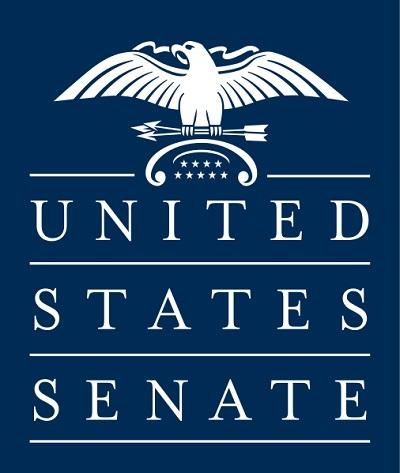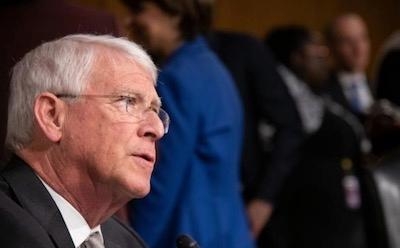Wed, Jun 17, 2020
Because (Of Course) Senators Know Enough About Aviation To Mandate Certification Regs
Here we go again... members of the Senate have put forth legislation to mandate how aircraft certification will be conducted.

Senator Roger Wicker (R-MS) and Senator Maria Cantwell (D-WA) have introduced bipartisan legislation to 'strengthen FAA oversight and improve aviation safety.'
Their Aircraft Safety and Certification Reform Act of 2020 allegedly draws on lessons learned from the tragic Boeing 737 MAX crashes, making clear FAA’s oversight and authority over the aircraft certification process and including provisions to address human factors to accurately assess pilot response to cockpit alerts.
“Safety is paramount,” said Cantwell.
“A primary goal of this legislation is to make sure the FAA remains in the driver’s seat when it comes to certification.
“This bill makes it clear the FAA is in charge of the certification workforce and the approval process. Additionally, it requires the FAA to act on the NTSB’s recommendations on new safety standards for automation and pilot training.

“After reviewing the evidence from accident reports, soliciting recommendations from aviation experts, speaking to witnesses and stakeholders, and holding a series of hearings on aviation safety, we are introducing bipartisan legislation that would take important steps to improve safety, especially as it relates to the manufacturing of passenger aircraft,” said Wicker. “I look forward to continuing to work with Ranking Member Cantwell to enhance safety for the flying public and avoid future tragedies.”
The Aircraft Safety and Certification Reform Act of 2020 will reportedly:
- Give FAA more control and clarify its authority over the certification process by mandating direct FAA approval of manufacturers’ engineers acting on behalf of the FAA, the ODA unit members, and rescission of additional FAA authority to allow-self certification;
- Assign FAA safety advisors to communicate with and monitor compliance of individual ODA unit members involved in the certification of large commercial airplanes, like the 737 MAX, and their engines;
- Require implementation of new National Transportation Safety Board (NTSB) safety recommendations on flight automation and pilot response, as well as safety management systems for aircraft manufacturers
- Establish new whistleblower protections and fortify channels for reporting safety problems during the certification process, between industry and the FAA, and within the agency so that concerns of technical experts are heard;
- Eliminate industry-friendly panels and roll back performance incentives that do not prioritize safety in the aircraft certification process as a first and foremost goal;
- Build FAA technical capacity to address challenges of advanced technology, like automation in the cockpit, through the creation of a new Center for Excellence for flight automation and human factors; continuing education and training for inspectors and engineers on new technology; and increased funding for scientific and technical advisors.
The introduction of this safety legislation comes as the Commerce Committee will hold a hearing Wednesday, June 17 – with FAA Administrator Steve Dickson on FAA oversight of aircraft certification.
More News
He Attempted To Restart The Engine Three Times. On The Third Restart Attempt, He Noticed That Flames Were Coming Out From The Right Wing Near The Fuel Cap Analysis: The pilot repor>[...]
Make Sure You NEVER Miss A New Story From Aero-News Network Do you ever feel like you never see posts from a certain person or page on Facebook or Instagram? Here’s how you c>[...]
From 2009 (YouTube Edition): Leading Air Show Performers Give Their Best Advice for Newcomers On December 6th through December 9th, the Paris Las Vegas Hotel hosted over 1,500 air >[...]
Aero Linx: NASA ASRS ASRS captures confidential reports, analyzes the resulting aviation safety data, and disseminates vital information to the aviation community. The ASRS is an i>[...]
“For our inaugural Pylon Racing Seminar in Roswell, we were thrilled to certify 60 pilots across our six closed-course pylon race classes. Not only did this year’s PRS >[...]
 NTSB Final Report: Rutan Long-EZ
NTSB Final Report: Rutan Long-EZ ANN FAQ: Turn On Post Notifications
ANN FAQ: Turn On Post Notifications Classic Aero-TV: ICAS Perspectives - Advice for New Air Show Performers
Classic Aero-TV: ICAS Perspectives - Advice for New Air Show Performers ANN's Daily Aero-Linx (06.28.25)
ANN's Daily Aero-Linx (06.28.25) Aero-News: Quote of the Day (06.28.25)
Aero-News: Quote of the Day (06.28.25)




